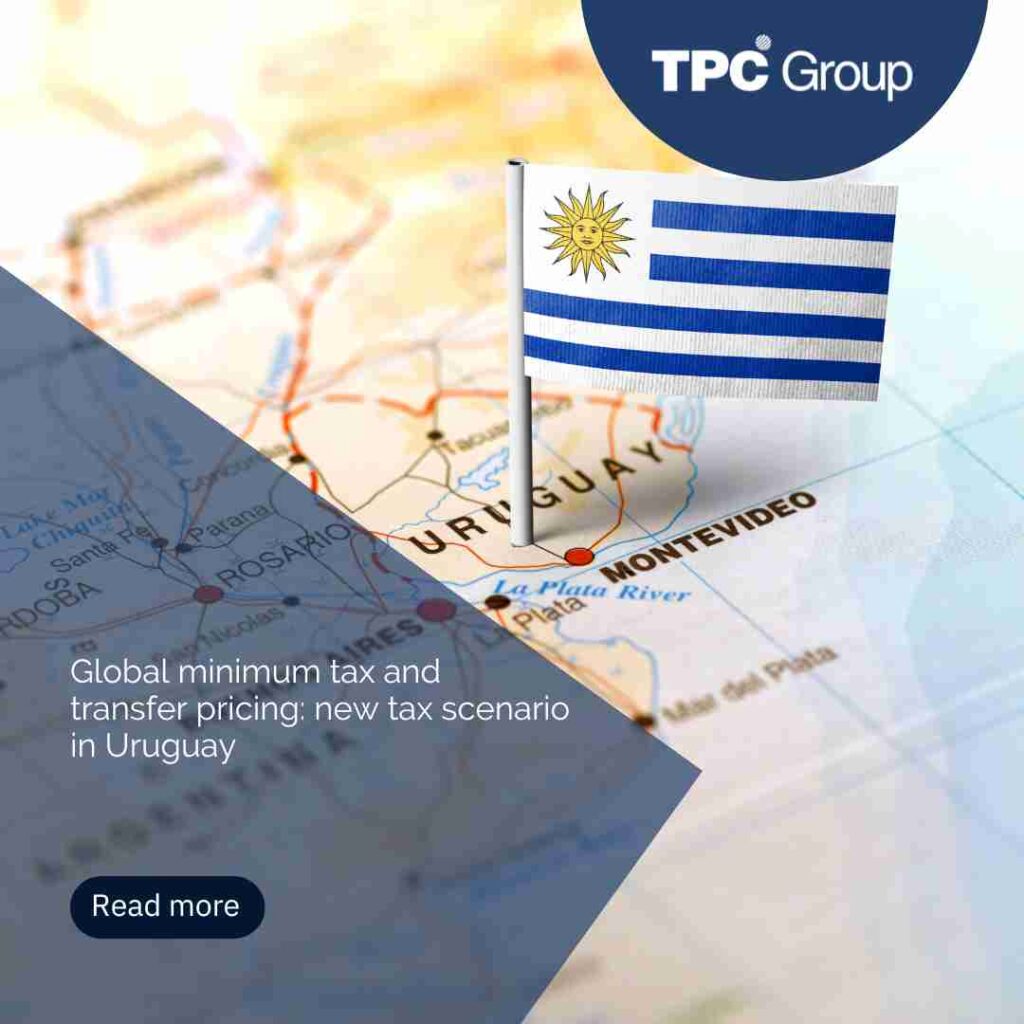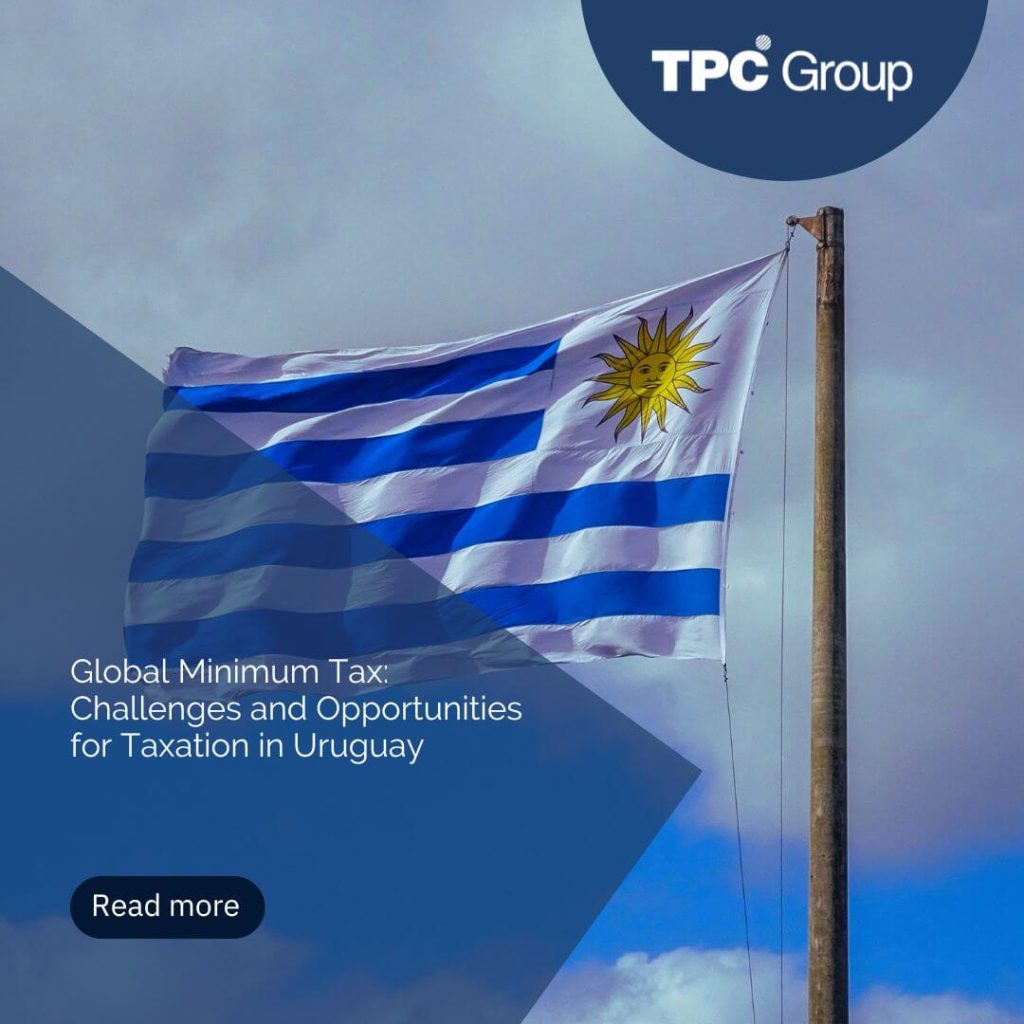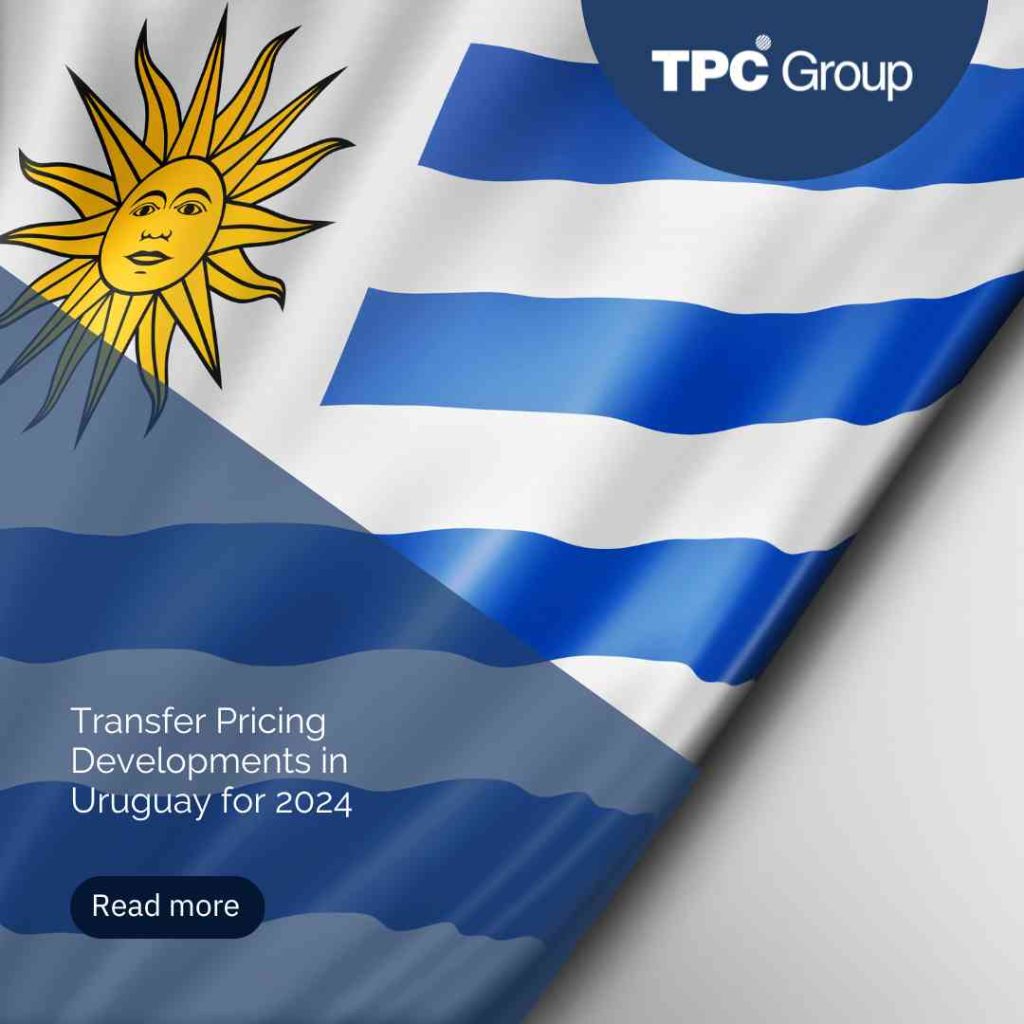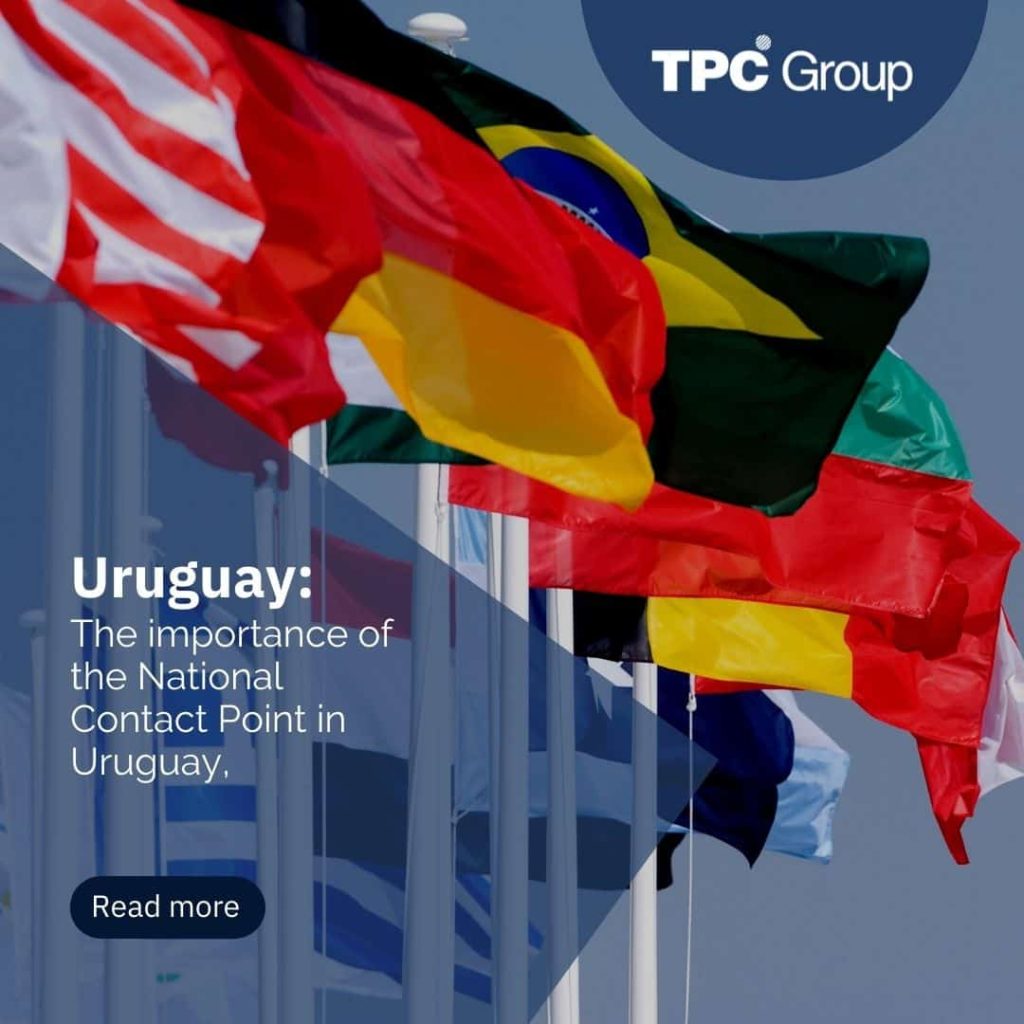Concept and Regulation in Uruguay
Transfer pricing in Uruguayhas been regulated since 2007, in Chapter VII, Title IV, of the1996 Ordinance as amended.
Nonetheless, the Master File and Country by Country Report (CbC Report) were introduced in 2017 by Law 19484 as formal obligations for certain taxpayers.
Due to the last amendment, Uruguay has aligned with Action 13 of the BEPS (Base Erosion and Profit Shifting) Plan of the Organization for Economic Cooperation and Development (OECD) on supporting documentation to combat tax evasion and avoidance.
Arm’s Length Principle
The Arm’s Length Principle governs Transfer Pricing, based on prices agreed upon in related party transactions, to be at market values.
This principle is also regulated in the Uruguayan legislation in Article 38 of Chapter VII, Title IV of the 1996 Consolidated Amended Text and amendments thereto.
This article above states that transactions carried out by taxpayers with related entities will be considered independent-party transactions when all their services are under normal market practices.
Transfer Pricing Application Scope in Uruguay
Article 39, Chapter VII, Title IV, Article 39 of the 1996 Consolidated Amended Text according to Article 1 of Decree No. 56/009, as amended, establishes under what cases the Transfer Pricing regime in Uruguay configures the relation.
Therefore, the following will be within the scope of said rules as long as both are subject to control by the same individuals or legal entities or have decision-making power due to their capital participation by exercising functional influence or any other type of influence, as follows:
- Taxpayers performing transactions with related entities residing abroad.
- Taxpayers obtaining income from personal services without an employment contract are subject to the Income Tax on Income from Economic Activities regarding related entities abroad.
- Taxpayers performing transactions with entities incorporated, domiciled, resident, or located in tax havens or benefited by a tax regime of low or no taxation. Likewise, transactions with entities operating in customs exclaves are included herein.
Definition of Related Parties in Uruguay
According to Resolution No. 2,084/009, issued by the GDI (Dirección General Impositiva – Tax Administration Department/IRS), which regulates the provisions of Article 39 quoted in the preceding paragraph, the cases of related entities will occur when:
- An entity owns 10% or more of the capitalof another entity.
- An entity exerts functional influenceson another.
- Two or more entities have indistinctly:
- A common entity owning equal or more than 10% of its capital.
- An entity owningone or more entities equal to or more than the percentage indicated above and having functional influence in one or more entities.
- A common entitywith functional influences simultaneously on these.
- An entity with enough votes to form the corporate will.
- The existence of a common entitywith the necessary votes to form the corporate will.
- An entity is an agent, distributor, or exclusive supplierof another.
- The existence of a common entity setting business policies in two or more companies.
- An entity assumesthe losses or expenses of others.
An entity resident or domiciled in tax havens or preferential regimes is also considered a related party, according to Article 40 of Title IV.
Transfer Pricing Methods in Uruguay
In order to establish whether related party transactions are at market prices, the Uruguayan legislation has established five methodologies.
According to Article 41 of Title IV of the 1996 Consolidated Amended Text, incorporated by Law 18,083, the following adjustment methods shall be considered:
- Comparable Uncontrolled Price Method.
- Resale Price Method.
- Cost Plus Method.
- Profit Split Method.
- Transactional Net Margin Method.
The taxpayer shall choose the most appropriate method for the type of transaction performed. Conversely, in Articles 42 and 43 of Title 4, particular methods are established for certain import and export operations, whether carried out directly or through an international intermediary.
Transfer Pricing Affidavit and Documentation in Uruguay
Articles 14 and 15 of Decree No. 056/009 state that taxpayers within the scope of the Transfer Pricing rules in Uruguay must file an Affidavit and Documentation of the related party transactions, respectively.
Law No. 19484, enacted in 2017, establishes the obligation to file the Master File and Country-by-Country Reports (CbC Report) according to the guidelines outlined in Action 13 of the BEPS Plan.
Transfer Pricing Affidavit
According to Article 14 of the Decree above and Article 10 of Resolution No. 2,084/2009, taxpayers performing related party transactions must file an Informative Affidavit stating them.
Those who comply with any of the following conditions shall be obligated to do so:
- Those in the Large Taxpayers Division.
- Transactions performed under this regime for an amount exceeding UI 50,000,000 (fifty million indexed units) in the corresponding fiscal period. Transactions by Free Trade Zone users, as indicated in Law No. 15,921, are exempted from this paragraph, provided not being subject to the Income Tax from Economic Activities.
- They have been notified by the DGI.
Such Affidavit will be elaborated through Form N°3001 to be filed to the Tax Administration up to the ninth month, counted from the fiscal closing date, which will depend on the last TIN (Taxpayer Identification Number) digit.
Master File
Law 19484, enacted in 2017, amends the valuation rules in Uruguay, thus establishing new special affidavits.
Thus, Article 46 of Title IV of the 1996 Consolidated Amended Text states that member taxpayers of a Multinational Group must file the Master File.
A group of two or more entities residing in different related jurisdictions, directly or indirectly, by the control of the same individuals or legal persons, by their capital participation, or by the functional influence that allows them to have decision-making power, are considered as such.
The Report must contain the organizational structure of the Multinational Group, its business description, the indication of the group’s intangible assets, its financial activities among group entities, and its economic and tax position.
Country by Country Report
The Country-by-Country Report will be subject to the member taxpayer of a high economic importance Multinational Group as long as the established relation case is configured as in the preceding paragraph.
A Multinational Group of an extensive economic dimension shall be considered as such, according to Article 5 of Decree No. 353/018, when its total consolidated revenues are equal to or exceed the 750,000,000 euros or its equivalent in the local currency.
It shall be exempted from this Report when the latter should be filed by a Group entity residing in a country with which Uruguay has an agreement to exchange tax information.
The content will indicate the identification of each member group, the performed activities, consolidated gross income, discerning those obtained from related and independent entities, income before taxes, and taxes paid, among others.
Regarding the filing deadline of the Master File, it must be filed within 12 months following the end of the fiscal year, according to Article 9 of Decree No. 353/018.
Technical Transfer Pricing Study
Article 10 of Resolution No. 2,084/2009 states that taxpayers performing related party transactions must file a Transfer Pricing Study along with the Informative Affidavit.
Therefore, the taxpayers will be the same as those established to file an Affidavit.
The minimum content includes identification of the taxpayer, the activity, risks, assets used, identification of related parties, details of the transactions, and analysis methodology.
Transfer Pricing Non-compliance Penalties in Uruguay
The Transfer Pricing regime in Uruguay has specific sanctions related to non-compliance with Transfer Pricing obligations.
Thus, Article 46 bis of Title IV of the 1996 Consolidated Amended Text states that non-compliance with the formal duties of said regime shall be sanctioned in a graduated manner, according to Article 100 of the Uruguayan Tax Code, under the fining regime of the fourth paragraph of Article 469 of Law No. 17,930, in the redaction of Article 68 of Law No. 18,083.
The latter article states that the fine will be up to one thousand times the maximum fine per violation established in Article 95 of the Tax Code. As amended by Decree No. 355/19, it states a penalty per violation ranging from $480 to $8,970.
Therefore, the fine related to these may amount to $480,000 up to $8,970,000.
The maximum fine stated in Decree 465/011, which updates the amounts established in Articles 95 and 98 of the Code, can range from 4,750 Uruguayan pesos, so such a penalty can reach up to 4,750,000 Uruguayan pesos.
Finally, if a taxpayer required to have the Transfer Pricing study does not have it, the former can be fined from $8,260 to $8,260,000.





